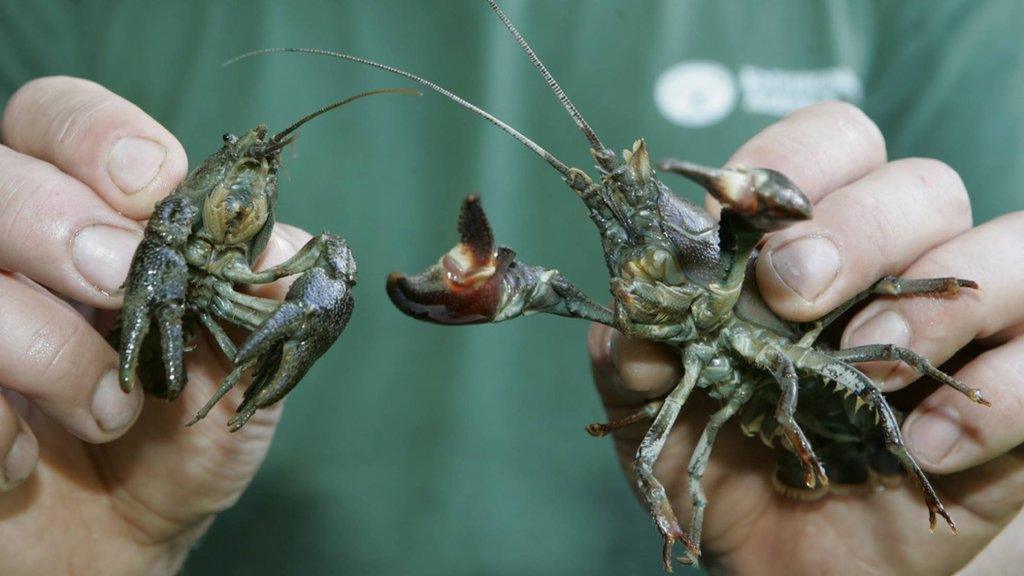Endangered white-clawed crayfish released at secret Bristol location
- Published
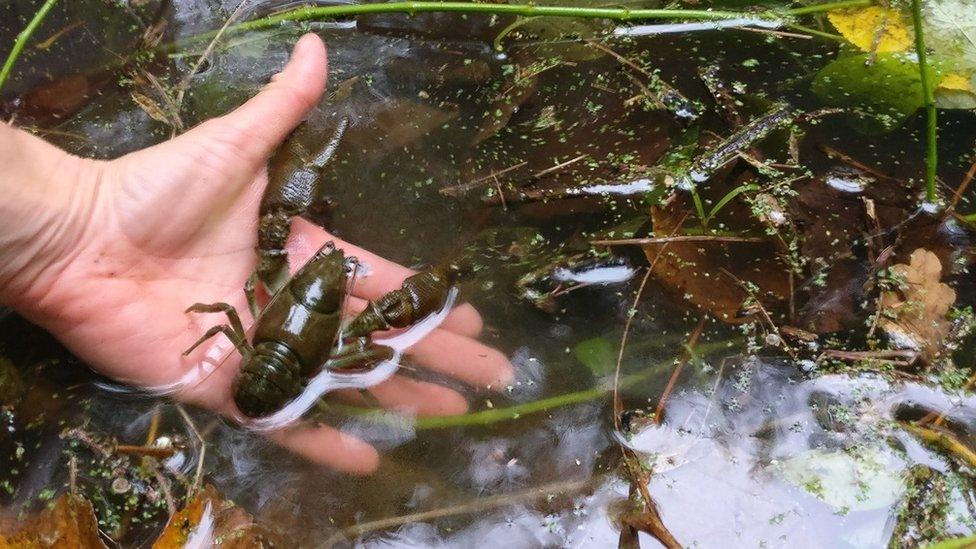
The crayfish are being released at a secret location
A secret woodland location has been chosen to help save one of the UK's most endangered native species.
Experts fear the white-clawed crayfish could become extinct in Britain within 20 years.
Now 34 of the crustaceans have been released into an historic pond at the Wild Place Project near Bristol.
The location of the pond, which is the size of a tennis court, is being kept under wraps so the crayfish can live undisturbed with hopes they will breed.
The pond, part of the 55-hectare (550,000sqm) site, has been there for more than 100 years and was once used to wash the wheels from horse-drawn carriages.
Bristol Zoological Society said it took two years for a team of environmentalists, including 10 volunteers, to clear the pond of mud, fallen branches, old wheels, tyres and a lorry-load of litter.
It was left to refill with rainwater and 100 small plastic pipes were added to mimic natural refuges in which crayfish live.
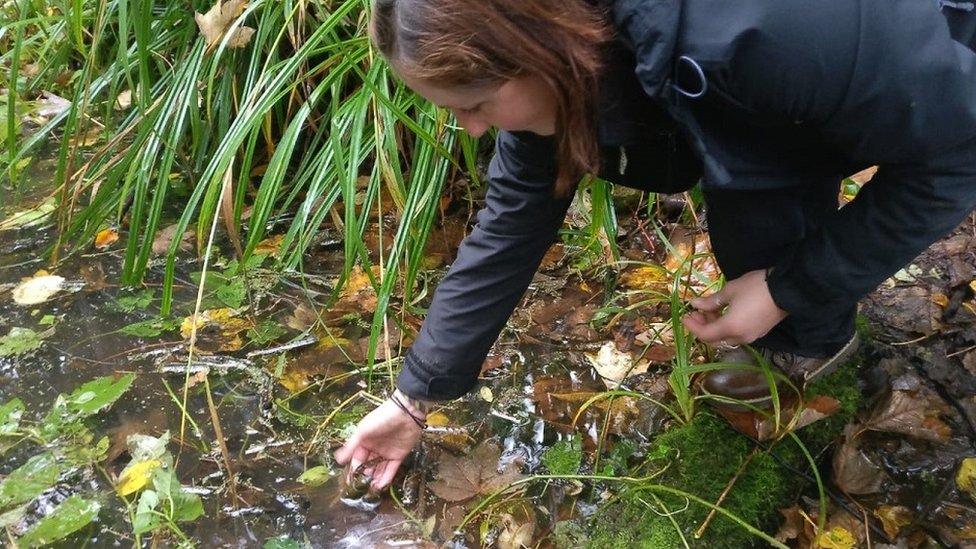
It took two years to get the secret pond ready for the crayfish to be released
The crayfish were bred and reared at Bristol Zoo Gardens and at Bristol Water's fishery at Ubley, near Blagdon, Somerset.
Neil Green, UK Biosecurity Conservation Officer with Bristol Zoological Society, said the white-clawed crayfish captive-breeding and reintroduction programme began 10 years ago.
Since then, more than 5,000 white-clawed crayfish have been hatched and reared by Bristol Zoological Society.
Mr Green said: "We are hoping the majority of the crayfish will survive because they are free of the pressures and predators that would be found in a river.
Invasive species threat
"White-clawed crayfish are important, they are the UK's only native crayfish and they are like a barometer because if they are healthy then the rest of the ecosystem around them will be in good shape."
He added it is hoped once the crayfish start breeding additional sites can be established which will help bolster dwindling numbers.
The white-clawed crayfish are under threat of extinction due to the spread of invasive North American signal crayfish, which compete for food and habitat and carry crayfish plague - a disease which is deadly to white-clawed crayfish.
They have suffered a 70 per cent decline in numbers in the south-west of England.
Related topics
- Published5 November 2019
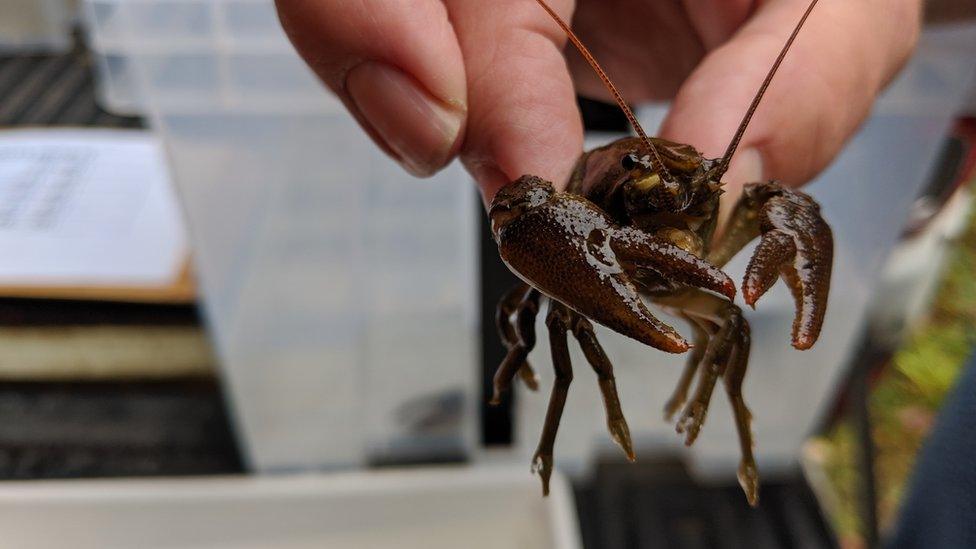
- Published11 September 2019
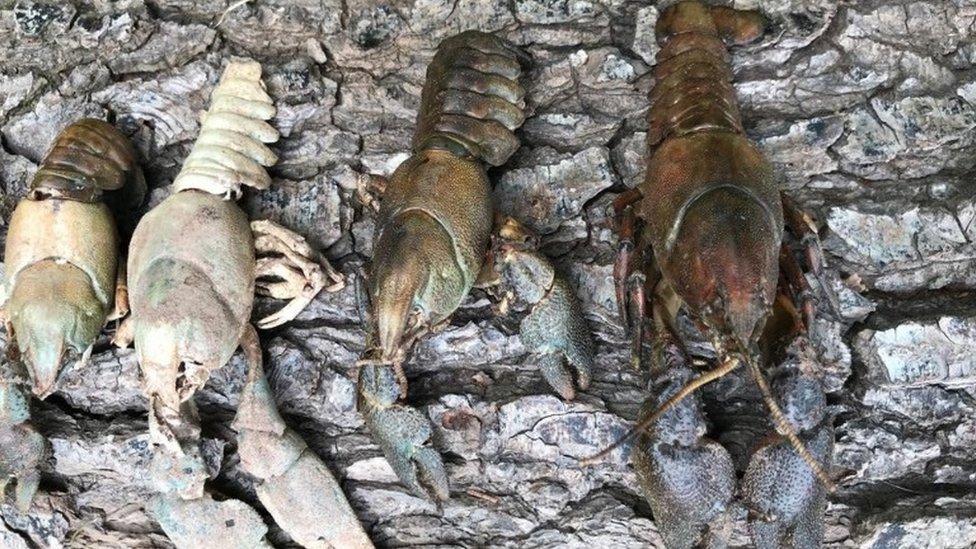
- Published11 September 2012
